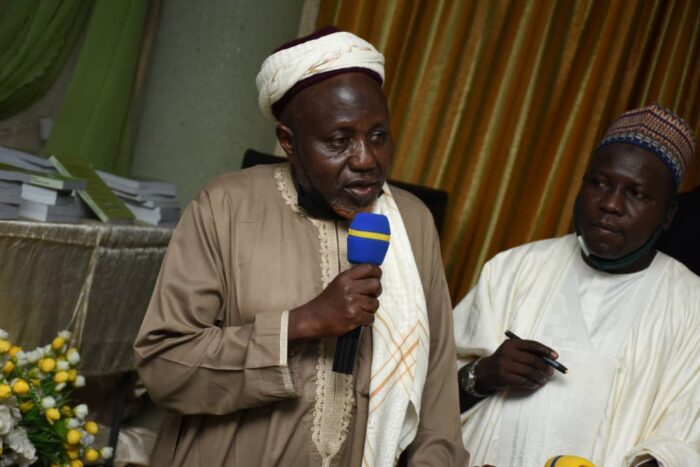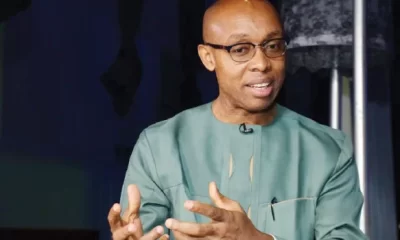Article of Faith
The Fallacy Of Ethnic Identity -By Ibrahim M. Attahir
The fallacy of the advocacy of separating Hausa from Fulani is that it is likely to bring back the pre-Islamic rivalry. In that era, the Hausa city states of Kano, Katsina, Zazzau, Gobir, etc were busy fighting themselves just like the Arabs before Islam despite the common language, culture and region.

In the Name of Allah Most Gracious Most Merciful. May Peace and Blessings of Allah be upon His Messenger.
According to Oxford Dictionary, identity is: “the fact of being who or what a person or thing is”. It may also mean: “a close similarity or affinity”. Again, the Oxford Dictionary defines ethnicity as: “the fact or state of belonging to a social group that has a common national or cultural tradition”. Ethnic identity, therefore, means the fact of belonging to a particular ethnic or tribal group. In Nigeria and some neighbouring West African countries, there is an attempt in recent times to revisit the pre-Islamic issue of ethnic identity between Hausa and Fulani. The advocates claim that the 18th Century Jihad led by Sheikh (Shehu) Usman Danfodio and his lieutenants (disciples) is a Fulani domination. The issue is trending in the social media. I feel that there is need to shed some light on the issue.
It is human nature to be ethnocentric and be proud of one’s identity. All over the world, negative sentiments associated with the issue of ethnic identity lead to crisis. We know how negative ethnic sentiments led to the Hutu/Tutsi genocide in Rwanda in 1994. Nigeria is one of the countries with many ethnic/tribal groups and it has its own fair share of ethnic frictions over the years sometimes degenerating into ethno-religious disturbances. Therefore, it is not surprising to hear about issues of ethnic identity being revisited especially in an era of politicking. However, it is least expected that somebody will think of igniting ethnic rivalry between Hausa and Fulani who have virtually fused into one people.
The term “Hausa/Fulani” was, most likely, coined by people outside the Hausa and Fulani people. Whether the motive of those who coined it was good or bad, it is informed by the near assimilation of both due to Islamic religious factor. Islam is strongly against ethnic identity, tribalism, racism, etc. Both Hausa and Fulani are predominantly Muslims and they, mainly, live in the same region. An evidence that it is the Islamic factor that joined them together is that in a loose sense, the term Hausa Fulani may cover all the other tribes that are predominantly Muslims in Northern Nigeria. Inter-marriage has also further integrated them. There are only few persons in the Northern Nigeria that do not have the blood of Hausa, Fulani, Kanuri and other smaller ethnic groups in them. It will be very difficult, if not impossible, for those advocating for separate identity for Hausa and Fulani people to break the religious, cultural and social bond that keep them together for ages.
The fallacy of the advocacy of separating Hausa from Fulani is that it is likely to bring back the pre-Islamic rivalry. In that era, the Hausa city states of Kano, Katsina, Zazzau, Gobir, etc were busy fighting themselves just like the Arabs before Islam despite the common language, culture and region. The same thing will happen between them and Fulani and between them and each of the various ethnic groups such as Kanuri, Nupe, Gbagyi, Bolewa, Tera, Jarawa, etc who have been joined together by Islam. The intra-ethnic crisis of that age was not peculiar to the Hausa people. The Ife and Modakeke crisis was very notorious among the Yorubas. The Igbos of Aguleri and Umuleri were at each other’s throat until recent years. Any advocacy of going back to that dark era is an invitation to instability. Ironically, such calls come at a time that other parts of the world are forming regional bodies to serve their common interests.
Another fallacy is that it is a fact that all human beings trace their origin to common ancestors. If we all trace our origin to the same ancestors, then the pride of any ethnic/tribal superiority is an exercise in futility. I have not heard of any people that claim that they are not descendants of Adam and Eve. Many of the so-called ethnic nationalities in Nigeria claim that they originated from Yemen, Egypt, Iraq, etc. This has put a lie to the antiquated indigene-settler acrimony. One will think that the world has gone beyond ethnic considerations. The family of the former President of the United States, Barack Obama is known in Kenya. Yet, he became the President of the US. Some people are busy here wanting to set Hausa against Fulani and vice versa.
The bond of ethnic identity is very strong. However, the bond of universal Islamic brotherhood is many times stronger than ethnic identity. Islam is strongly against racial, tribal, sectional and other differences. The Glorious Qur’an, 49: 13 provides that: “O mankind, indeed We have created you from male and female and made you peoples and tribes that you may know one another. Indeed, the most noble of you in the sight of Allah is the most righteous of you. Indeed, Allah is all Knowing and Acquainted”. The Prophet (peace be upon him) said that: “Verily, Allah has removed from you the pride of the time of ignorance with its boasting of ancestors. Verily, one is only a righteous believer or a miserable sinner. All of the people are the children of Adam, and Adam was created from dust”. Narrated by Tirmidhi from Abu Hurairah, Hadith No. 3955.
Whatever may be their motive, the biggest fallacy or contradiction the proponents of Hausa Fulani separation will face is if they claim to be Muslims. If, they are Muslims, where will they put textual provisions like this Hadith?: “He is not one of us who calls to tribalism. He is not one of us who fights for the sake of tribalism. He is not one of us who dies following the way of tribalism”. Narrated by Abu Dawud, Hadith No. 5121. I don’t know the position of Christianity on tribalism. But even if the advocates are Hausa Christians, separating Hausa Christians from Fulani Christians will not serve any meaningful interest of Christianity. The Christian religious establishment will not want to promote ethnic rivalry among the tribes that are Christians. However, if the advocates are Hausa pagans, their advocacy may be understandable because each ethnic group has its own pagan practices and it does not apply to anybody in another ethnic group. Paganism, therefore, does not bring various ethnic groups under one umbrella.
The movement of the revered Shehu Danfodio and his disciples was an intellectual one. It was, therefore, accompanied with volumes of works they wrote on variety of subjects. Those advocates of separation only rain abuses and insults on the Shehu and his disciples. They have not presented any evidence from his works and those of his brother, Abdullahi Danfodio (more popularly known as Abdullahin Gwandu) and his son, Sultan Muhammad Bello to show that the movement was tribal. A careful perusal of their works reveals something contrary to the allegations against them. Most probably, there is a political undertone to this advocacy, which even those prosecuting it may not be conscious of until much later. Since the era of the monolithic North, politicians have been adopting different strategies to break the North. They instigated Northern minorities against the Hausa/Fulani; they used creation of states; they instigated the Northern minorities against the Hausas separately; they instigated Northern minorities against the Fulanis separately. All those efforts did not give them the desired results. May be they now want to take the bull by the horn and instigate Hausa against Fulani and vice versa.
Whatever is the motive, the advocacy of separating the Hausa from Fulani is dead on arrival because it is based on empty sentiments devoid of concrete and convincing proofs.
Praise be to Allah. May peace and blessing of Allah be upon the Messenger of Allah.
Attahir writes from Kumo Bypass, Gombe



















